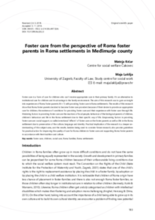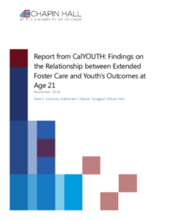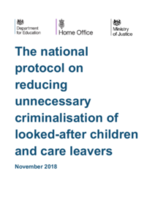Displaying 1061 - 1070 of 2221
This book takes readers on a journey that spans three decades and five continents, describing the work of SFAC to keep children in their families and communities or to find safe alternatives where this is not possible.
This report is the evaluation of the pilot partnership agreement between Police Scotland and local authorities, for responses to children and young people missing from foster and residential care.
The aim of this research was to gain an insight into experiences of Roma foster parents with providing foster care in Roma settlements in Croatia.
The current study examined placement, carer, and child characteristics related to perceived foster parent stress in a sample of 158 foster and kin carers in Queensland, Australia.
The present systematic review examines the current literature on the association between out-of-home placement and offending behavior among youth with Child Protection Services maltreatment reports in the US.
The purpose of this paper is to examine the importance of social support for foster parents, in regards to confidence and satisfaction, as well as perceived challenges with fostering.
The aim of this study was to improve the mean time to initial foster care evaluation (TIE) from 32 to <7 days within 12 months for children in FC in Durham County, North Carolina.
The present report builds on prior research by examining outcomes from the third interview wave of the California Youth Transitions to Adulthood Study (CalYOUTH), which took place when study participants were 21 years old or older.
This guidance from the UK's Department for Education presents a framework to help social care and criminal justice agencies keep looked-after children out of the criminal justice system.
This Comment argues that the Adoption Assistance and Child Welfare Act (CWA) creates an enforceable right to foster care maintenance payments under § 1983 by analyzing the CWA's text and structure and by drawing on the context of the Act's enactment and subsequent legislative history.




